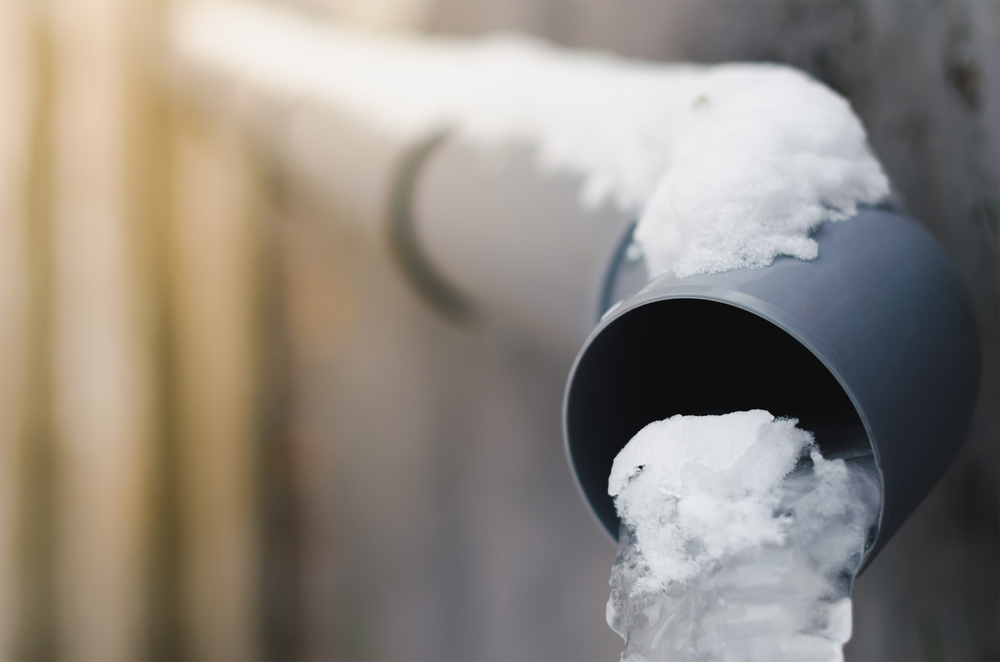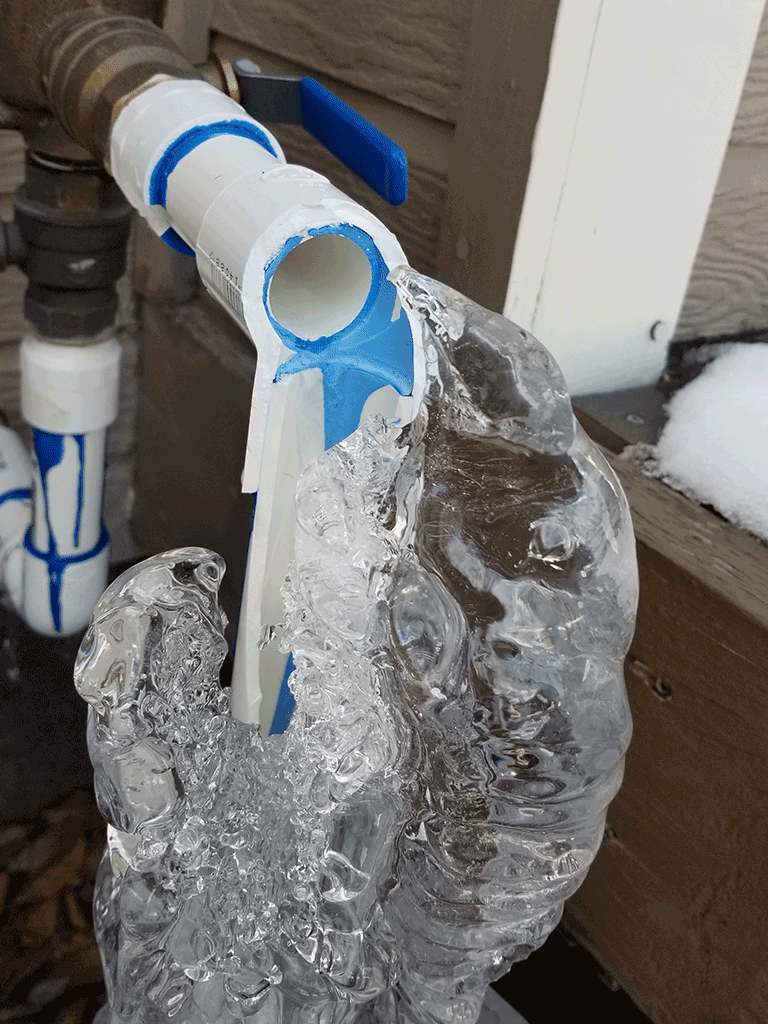Guidance for Avoiding Frozen Pipes in Winter: Specialist Insights
Guidance for Avoiding Frozen Pipes in Winter: Specialist Insights
Blog Article
They are making a number of good pointers on the subject of How to prepare your home plumbing for winter weather in general in the content down the page.

Winter can ruin your pipes, especially by freezing pipes. Below's just how to avoid it from occurring and what to do if it does.
Introduction
As temperature levels decrease, the risk of icy pipelines increases, possibly causing costly repairs and water damage. Recognizing exactly how to prevent frozen pipelines is essential for house owners in cool climates.
Prevention Tips
Protecting vulnerable pipelines
Cover pipes in insulation sleeves or use heat tape to protect them from freezing temperature levels. Focus on pipes in unheated or exterior areas of the home.
Heating techniques
Maintain indoor areas appropriately warmed, especially locations with plumbing. Open closet doors to enable warm air to flow around pipes under sinks.
Just how to determine frozen pipelines
Look for lowered water flow from taps, uncommon odors or noises from pipes, and visible frost on revealed pipelines.
Long-Term Solutions
Structural modifications
Think about rerouting pipelines far from outside wall surfaces or unheated areas. Add additional insulation to attic rooms, cellars, and crawl spaces.
Upgrading insulation
Purchase high-quality insulation for pipes, attics, and walls. Appropriate insulation helps keep consistent temperature levels and reduces the danger of icy pipes.
Securing Exterior Plumbing
Yard pipes and outside taps
Detach and drain garden hoses before winter months. Install frost-proof faucets or cover outdoor faucets with insulated caps.
Comprehending Icy Pipelines
What creates pipes to freeze?
Pipes freeze when exposed to temperatures below 32 ° F (0 ° C) for prolonged periods. As water inside the pipelines ices up, it broadens, putting pressure on the pipe wall surfaces and potentially triggering them to rupture.
Dangers and damages
Icy pipes can result in water disturbances, home damages, and costly repair work. Burst pipes can flooding homes and create considerable architectural damage.
Signs of Frozen Pipes
Recognizing icy pipelines early can prevent them from bursting.
What to Do If Your Pipelines Freeze
Immediate activities to take
If you suspect icy pipelines, maintain taps open up to alleviate pressure as the ice thaws. Make use of a hairdryer or towels soaked in warm water to thaw pipes slowly.
Verdict
Protecting against frozen pipelines requires positive measures and fast responses. By comprehending the reasons, signs, and safety nets, homeowners can secure their pipes during cold weather.
Helpful Tips to Prevent Frozen Pipes this Winter
UNDERSTANDING THE BASICS: WHY PIPES FREEZE AND WHY IT’S A PROBLEM
Water freezing inside pipes is common during the winter months, but understanding why pipes freeze, and the potential problems it can cause is crucial in preventing such incidents. This section will delve into the basics of why pipes freeze and the associated problems that may arise.
THE SCIENCE BEHIND FROZEN PIPES
When water reaches freezing temperatures, it undergoes a physical transformation and solidifies into ice. This expansion of water as it freezes is the primary reason pipes can burst. As the water inside the pipe freezes, it expands, creating immense pressure on the walls. If the pressure becomes too great, the pipe can crack or rupture, leading to leaks and water damage.
FACTORS THAT CONTRIBUTE TO PIPE FREEZING
Low Temperatures: Extremely cold weather, especially below freezing, increases the risk of pipes freezing. Uninsulated or Poorly Insulated Pipes: Pipes located in unheated areas, such as basements, crawl spaces, or attics, are more prone to freezing. Insufficient insulation or lack of insulation altogether exacerbates the problem. Exterior Wall Exposure: Pipes running along exterior walls are susceptible to freezing as they encounter colder temperatures outside. Lack of Heating or Temperature Regulation: Inadequate heating or inconsistent temperature control in your home can contribute to frozen pipes. PROBLEMS CAUSED BY FROZEN PIPES
- Pipe Bursting: As mentioned earlier, the expansion of water as it freezes can cause pipes to burst, resulting in significant water damage.
- Water Damage: When pipes burst, it can lead to flooding and water damage to your property, including walls, ceilings, flooring, and personal belongings.
- Structural Damage: Prolonged exposure to water from burst pipes can compromise the structural integrity of your home, leading to costly repairs.
- Mold and Mildew Growth: Excess moisture from water damage can create a favorable environment for mold and mildew growth, posing health risks to occupants.
- Disrupted Water Supply: Frozen pipes can also result in a complete or partial loss of water supply until the issue is resolved.
WHY CERTAIN PIPES ARE MORE PRONE TO FREEZING
- Location: Pipes located in unheated or poorly insulated areas, such as basements, crawl spaces, attics, or exterior walls, are at higher risk of freezing.
- Exterior Pipes: Outdoor pipes, such as those used for irrigation or exposed plumbing, are particularly vulnerable to freezing as they are directly exposed to the elements.
- Supply Lines: Pipes that carry water from the main water supply into your home, including the main water line, are critical to protect as freezing in these lines can affect your entire plumbing system.
- Underground Pipes: Pipes buried underground, such as those connected to sprinkler systems or outdoor faucets, can be susceptible to freezing if not properly insulated.
https://busybusy.com/blog/helpful-tips-to-prevent-frozen-pipes-this-winter/

I'm just very occupied with How to Prevent Your Pipes From Freezing and I'm hoping you enjoyed reading our blog posting. Are you aware of another individual who is in to the topic? Take a moment to promote it. Thanks for taking the time to read it.
Details Report this page